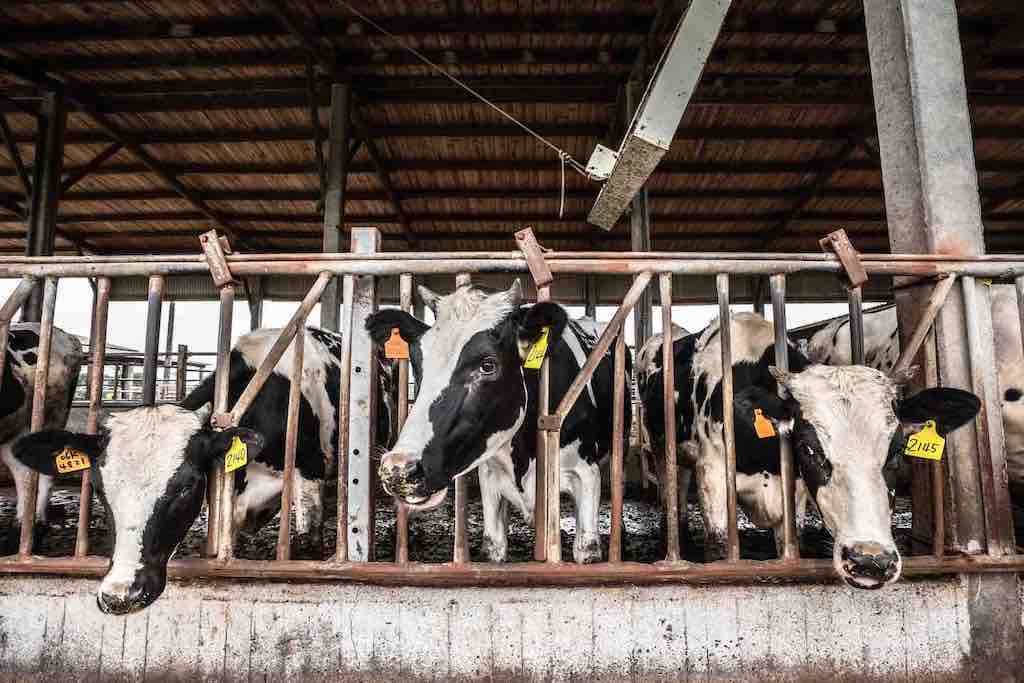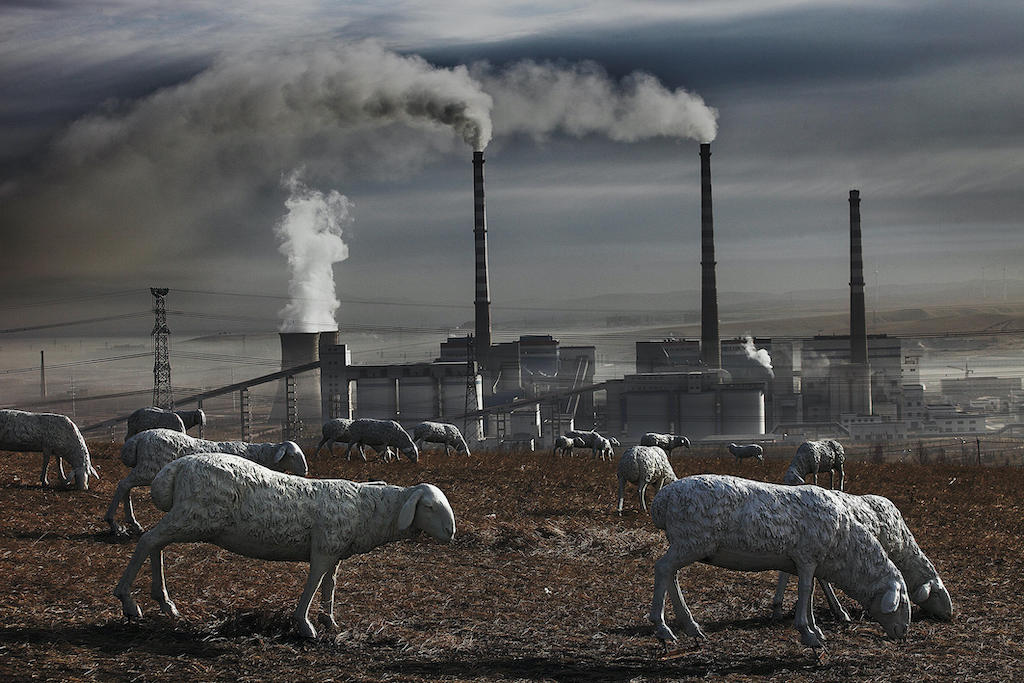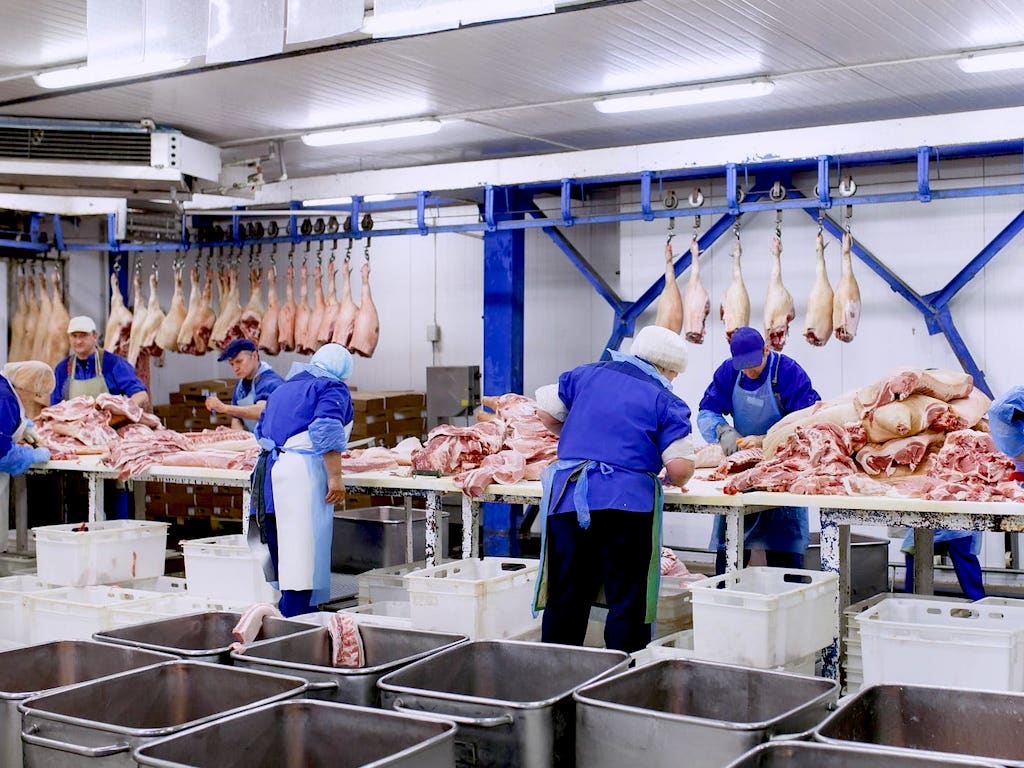4 Mins Read
Big meat and dairy companies have been actively spending millions of dollars to lobby against climate legislation, new research reveals. Examining the influence of meat and dairy firms on political responses to the climate crisis, the analysis finds that beef and dairy firms “appear to act collectively” in similar ways to the fossil fuel industry in order to block climate action and laws that would limit their production and resultant emissions.
Not only are animal agriculture companies one of the biggest greenhouse gas emitters, they are actively involved in shaping public opinion against climate action and spending enormous sums to lobby against laws that would limit their emissions, new research has found. The New York University (NYU) study, published in the journal Climatic Change, is the first peer-reviewed paper to look at the climate impact, accountability and political influence of the 35 largest meat and dairy firms globally.
Of the companies studied in the analysis, only four firms – Dairy Farmers of America, Nestlé, Danish Crown and Danone – have made pledges to achieve net-zero emissions by 2050 in line with the Paris agreement goals. The rest of the companies, including the three largest emitters in absolute terms – JBS, Tyson and Cargill – as well as other huge corporations like Fonterra and Smithfield, had yet to make any climate commitments at the time of the study collected data in 2020.
Read: Big meat to lose US$20 billion while alternative proteins poised for growth, report predicts
“Large meat and dairy companies are not doing enough to tackle climate change, and countries are not doing enough in terms of holding them accountable,” commented co-author Jennifer Jacquet, associate professor in the Department of Environmental Studies at NYU.

Their commitments centre on mitigating energy use, with little focus on emissions resulting from animal and land use, which make the biggest warming contributions in the agricultural sector.
Jennifer Jacquet, Associate Professor, NYU Department of Environmental Studies
Those firms that have made climate action pledges tended to take no action on emissions in the livestock raising and feed cultivation in the production process, and have not done anything to tackle methane emissions, said the authors. The U.N. estimates that the global animal agriculture industry fuels as much as 18% of greenhouse gas emissions – more than all transportation combined.
“Their commitments centre on mitigating energy use, with little focus on emissions resulting from animal and land use, which make the biggest warming contributions in the agricultural sector,” explained Jacquet.
“Their mitigation efforts focus on carbon dioxide, which is a small fraction of their emission across their supply chains,” added co-author Sonali McDermid, an associate professor in the same department. “They should be talking about methane, which is the more potent greenhouse gas, especially when it comes to cows.”
Instead of taking real action on climate change, the research warns that firms are in fact actively trying to block legislation that would curb their emissions, and spending millions of dollars to extend their political influence over such policies. These practices were most prevalent among U.S.-based big meat and dairy firms.
Read: Shell funded lobbying for Trump’s pro-fossil fuel & anti-climate bills, investigation reveals

“The largest meat and dairy companies in the U.S. have spent a considerable amount of time, money, and effort into downplaying the link between animal agriculture and climate change, and into fighting climate policy more generally,” said co-author Oliver Lazarus, who was an NYU graduate student at the time and is now a doctoral student at Harvard University.
8 out of 10 largest meat and dairy companies in the U.S. have “consistently lobbied” the Environmental Protection Agency (EPA) and the Congress on environmental issues, with Cargill issuing as many as 173 lobbying campaigns and reports since 2000. Altogether, the firms have doled out 545 quarterly lobbying reports over the past two decades.
The largest meat and dairy companies in the U.S. have spent a considerable amount of time, money, and effort into downplaying the link between animal agriculture and climate change.
Oliver Lazarus, Co-Author, NYU
With six animal agriculture U.S. industry groups spending a collective US$200 million since 2000 on lobbying against environmental laws such as the Clean Air Act, the researchers described the moves as a collaborative effort from the industry to block climate legislation that would limit their production, not unlike practices that the fossil fuel sector has undertaken.
“U.S. beef and dairy companies appear to act collectively in ways similar to the fossil fuel industry, which built an extensive climate change countermovement,” the researchers wrote.
“Meat- and dairy-related trade associations have more traditionally been used to lobby for access to grazing lands and fees and manure management regulations, and to influence government regulation, but more recently they have been involved in blocking climate policy that would limit production.”
Lead image courtesy of Shutterstock.




